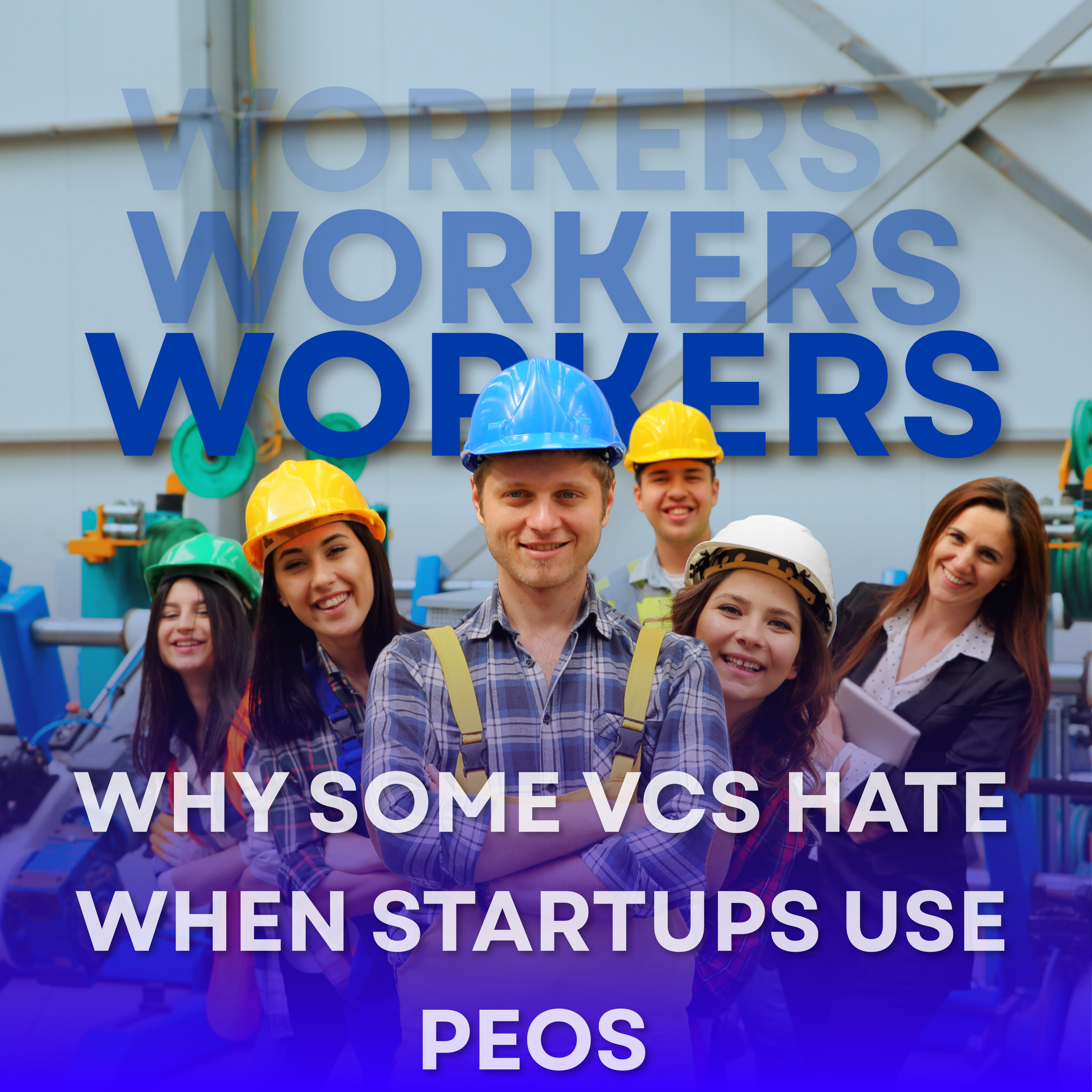At first glance, Professional Employer Organizations (PEOs) look like a dream solution for founders: they handle payroll, HR, compliance, and benefits, leaving the startup free to focus on building product and chasing growth. But behind the curtain, some venture capitalists (VCs) raise eyebrows when they see PEOs in the pitch deck. The sentiment is often unspoken but very real investors don’t always love startups that lean heavily on outsourcing HR. The question is: why? It’s not just about costs. It’s about control, scalability, optics, and long-term strategy. Below, we’ll unpack the major reasons why VCs often hate when startups use PEOs and why this tension between founders and investors isn’t going away anytime soon.
1. The “Sign of Weakness” Argument
Some investors view PEO reliance as a red flag that the startup isn’t serious about building internal infrastructure. To them, outsourcing HR signals a lack of operational maturity. Imagine pitching a $20M Series A while admitting you don’t have an in-house HR lead some VCs interpret this as a sign, you’re cutting corners in areas that matter for scale. The ir ony? Founders often use PEOs to avoid wasting resources, but VCs see it as avoidance of responsibility. The sarcastic question investors whisper: “If you can’t hire an HR generalist, how will you hire the next 50 engineers?” This perception fair or not can ding valuations.
2. The Fear of “Compliance Overdependence”
PEOs are great at keeping startups compliant across multiple states or even countries, but VCs worry about overreliance. What happens if the startup outgrows the PEO and suddenly must build HR systems from scratch? To investors, this looks like technical debt—except instead of software, it’s organizational debt. They worry about the messy transition, lawsuits, or compliance gaps when the PEO relationship ends. And worse, some VCs fear that startups use PEOs as a crutch instead of learning the complexities of labour laws and scaling HR processes. Translation: investors don’t like surprises, and a PEO exit can be one.
3. “Valuation Optics” and the Burn Rate Question
When VCs analyse burn rate, they look closely at payroll. But with PEOs, payroll often sits inside bundled invoices, making it harder to track per-employee costs and future obligations. Investors fear hidden liabilities, such as ballooning healthcare premiums or contract terms that lock the startup into expensive arrangements. This opacity frustrates investors who pride themselves on “clean cap tables and clean ledgers.” The sarcasm here practically writes itself: “We love surprises when it comes to product-market fit, not when it comes to benefits administration.” The inability to clearly model future burn sometimes makes startups appear riskier, which investors punish with lower valuations.
4. The “Culture Dilution” Narrative
Perhaps the most subtle—but potent—reason some VCs dislike PEOs is cultural. To investors, startup culture is a differentiator, and they see HR as the heartbeat of that culture. When a PEO controls onboarding, benefits, and employee relations, it feels outsourced and impersonal. The fear is that employees will view HR as an external service, not part of the company identity, weakening the “glue” that holds startup teams together. And in the investor’s mind, weak glue means weak retention. Sarcastically put: “Why build a world-class company culture when you can rent one at a monthly fee?”
5. Control and Investor Influence
VCs are control freaks—let’s call it what it is. They want influence over how companies structure teams, manage compliance, and control costs. PEOs reduce visibility and limit investor control over back-office functions. A founder who proudly says, “Our PEO handles all that,” might unknowingly frustrate investors who prefer transparency and influence. To them, the PEO acts like a black box—one more middleman between them and their ability to protect their investment. For investors, control isn’t just preference—it’s their job.
Conclusion
The tension between VCs and PEO adoption isn’t always rational. Founders embrace PEOs for efficiency, scalability, and compliance—but investors often see them as signals of immaturity, hidden costs, and diluted culture. The reality is somewhere in between. PEOs are invaluable for early-stage companies that can’t afford to waste energy on HR complexity, but they may trigger investor scepticism when it’s time to raise big rounds. For founders, the key is framing present the PEO as a temporary tool, not a crutch, and show a clear plan for transitioning HR in-house as the company scales. Otherwise, your investor may see your “time-saving hack” as a valuation drag.

